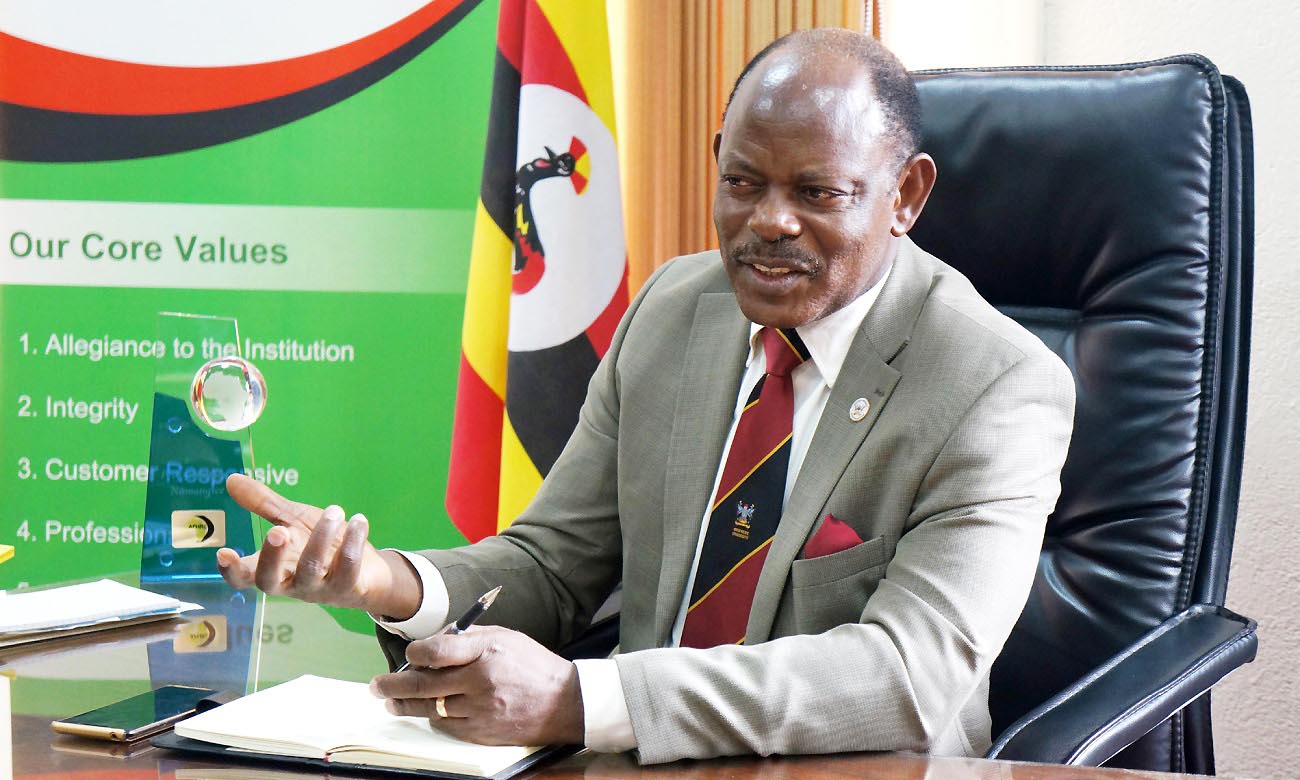The Makerere University research capacity building program supported by Sida started in 2000 running three phases to 2015 followed by the ongoing phase (Phase IV, 2015-2020). This funding has targeted the creation of research capacity and environment for Makerere University through training at Masters, PhDs and Post Doctorate levels; joint research activities among collaborating partners in Uganda and Sweden; Support to institutional reforms; infrastructural support: (ICTs and Library); Iganga-Mayuge Demographic Surveillance Site; Gender Mainstreaming and Quality Assurance.
Tremendous achievements have been registered involving the creation of an environment conducive to high-quality relevant research. Over 300 PhDs (over 30% of all the current PhDs at the university) have been trained to completion since the start of the program in 2000. The current phase has targeted training another 125 PhDs including 90 from participating public universities in Uganda (Kyambogo University, Mbarara University of Science and Technology – MUST, Gulu University and Busitema University). Curriculum for taught PhD has been developed in Mathematics at Makerere University and 20 students are registered on this curriculum. Other taught PhD curriculum has been supported in three colleges at Makerere University and all participating public universities. More than 200 supervisors at Makerere University and participating public universities have undergone training in quality supervision.
The publication profile of the university has greatly improved during the period of support from 72 in 2001 to over 382 in 2011 publications per year (Bunting et al. 2014). The current output is at more than 1000 publications as per citation indices. Most of the research considered in international citation databases is of very high impact. In addition to improved publication output, the PhD output has greatly improved from less than 20 PhDs graduating per year in 2000 to more than 70 PhDs graduating each year as of 2018. Of most significance in relation to knowledge generation is the tremendous networks that got ignited for the institution. The university is among the top 100 universities in the world in terms of connectivity with other top institutions, according to scimago (an agency that aggregates science evaluation resources).
In terms of equity, the Sida support targeted gender mainstreaming in the institution. This support to gender has moved the terrain to near level in students’ enrolment and generated some significant variation in staff ranks. In addition, the support to gender has spurred interest from other agencies like the Carnegie Corporation of New York and the MasterCard Foundation who have offered scholarships targeting female students.
Infrastructural support to the University Library, Information and Communication Technology (ICT) and the Iganga Mayuge Demographic Surveillance Site have generated multiplicative benefits that will make it easy for future increments in the intervention. Some of the infrastructure and equipment to this end is available for use by other people inclined to the purpose of these establishments. For instance the university library is the National Referral Library and National Legal Repository.
The collegiate system at Makerere University was developed as a result of a reform process that was supported in the third phase of the Sida funding. The reforms in Research, Administration and Finance saw the development of the University’s Organizational Manual as well her Research Manual. These documents guide all officers of the university in ensuring the provision of quality services to her stakeholders especially students at the university. The quality assurance regime at the university has been greatly impacted with the institutionalization of mechanisms to support compliance to national standards as well international practices. Such mechanisms include self-assessment, tracer studies, tracking of graduate students and student evaluation of courses and teaching. Support in the current phase has seen the inauguration of the University Press with 6 inaugural books in 2019.
The Sida support has generated benefits that, in the university’s consideration, are beyond what could be expected in such a small span of time. The base for illuminating on this view is from the aspirations that university had in the year 2000 at a time when it was developing its strategic plan for the period 2000-2005. An assessment of the prevailing situation at the time of planning clearly indicated the state of affairs that university wanted to overcome; especially the state of research and that of infrastructure.
However, despite the tremendous achievements outlined in this report, there are still some areas that call for more work, and therefore it is still a work in progress. Of significance are: delays in completion rates of PhD training, an imbalance in funding between the humanities and science based disciplines, inadequate incentives for research and the infancy of partnerships in participating public universities. The inclusion of other participating public universities came towards the second half of the period of review, with inadequate intensity of activities. The collaboration with these universities mainly centred around PhD training, and yet insufficient capacity has been built in these universities as the project winds up. This then raises a level of uncertainty on how these universities will continue on their own in strengthening this training.
That notwithstanding, the impact of Sida is perhaps best told by some of the beneficiaries in explaining how this support has transformed them at both a personal and institutional level. Some of these beneficiaries have gone on to hold leadership positions such as becoming Vice Chancellors; Prof. Barnabas Nawangwe – Makerere University, Prof. Celestino Obua – MUST, Prof. Eli Katunguka – Kyambogo University and Prof. Paul Waako – Busitema University. This partnership successfully brought these Vice Chancellors and consequently their universities to work together towards enhancing research capacity in Uganda. This publication brings you their voices. In addition are the voices of other beneficiaries including College Principals and Heads of Department.
Please Click Here for the full report


 General2 weeks ago
General2 weeks ago
 Natural Sciences2 weeks ago
Natural Sciences2 weeks ago
 Agriculture & Environment1 week ago
Agriculture & Environment1 week ago
 Health2 weeks ago
Health2 weeks ago
 General5 days ago
General5 days ago


